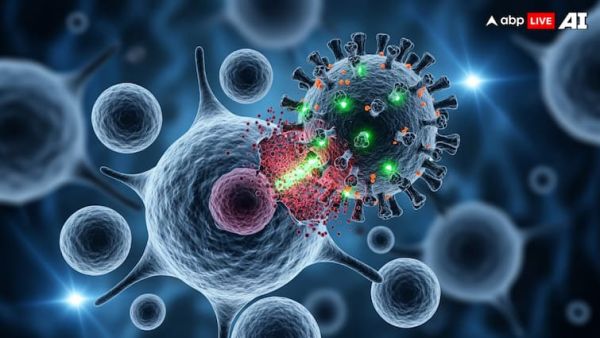
A striking breakthrough in cancer therapy has emerged from an unexpected source: the common herpes simplex virus. A new clinical study has revealed that a genetically engineered version of the herpes virus has proven to be a powerful weapon against advanced melanoma. This offers fresh hope to patients who have exhausted other treatment options.
Traditional associations with the herpes simplex virus type 1 (HSV-1) usually focus on its role in cold sores, but researchers have now harnessed its biological prowess to fight one of the most aggressive forms of skin cancer. In this phase 1-2 clinical trial, 140 patients with advanced melanoma — many of whom had seen other immunotherapy options fail — received injections of a modified HSV-1, known as RP1, in combination with the immunotherapy drug nivolumab.
The results were nothing short of impressive: about a third of trial participants saw their tumours shrink by at least 30%. Even more remarkably, nearly one in six patients had their tumours disappear entirely. What's more, RP1 tackled not just the tumours that were injected, but also those deeper in the body, showing the virus's surprising ability to rally the immune system to hunt down cancer throughout the body.
Why Does This Matter?
Melanoma is the fifth most common cancer among adults in the United States and is infamous for resisting treatment as it spreads. In India, it is relatively lower, with malignant melanoma accounting for 0.3% of cancers and ranking 32nd in India as per yearly incidence till 2020.
For patients with advanced melanoma, the outlook can be especially grim. When the disease stops responding to available immunotherapies, survival rates drop sharply, often to just a few years. That's why this new approach has doctors and patients alike cheering, as it offers a potential lifeline where none existed before.
So how does it work? The engineered herpes virus is designed to invade and destroy only cancer cells, sparing healthy tissue. As it replicates inside tumours, it bursts cancer cells open, releasing antigens and essentially waving a red flag that attracts the body's immune soldiers to the battle. This "one-two punch" of direct attack and immune awakening is at the heart of what makes oncolytic viruses, like the RP1 herpes virus, an exciting frontier in cancer therapy.
The excitement in the medical community is palpable. Following the impressive trial results, the US Food and Drug Administration (FDA) has granted priority review to RP1 in combination with nivolumab for advanced melanoma, speeding up the timeline for potential approval. While this isn't yet a universal cure, it marks a huge leap forward and gives new momentum in the fight against cancer.
Picture it: Common viruses, once feared, now reimagined as cancer-killing allies. It's a sign that innovation can come from the most unexpected places, and that hope, like science, sometimes arrives in surprising packages. For those battling melanoma, this may just be the breakthrough that changes everything.
[Disclaimer: The information provided in the article, including treatment suggestions shared by doctors, is intended for general informational purposes only. It is not a substitute for professional medical advice, diagnosis, or treatment. Always seek the advice of your physician or other qualified healthcare provider with any questions you may have regarding a medical condition.]
-
ED summons Anil Ambani in loan fraud probe

-
‘Faked my marriage, had suicidal thoughts’: Yuzvendra Chahal

-
PNB Housing Shares Plunge 16% After CEO Girish Kousgi Resigns

-
Omar Abdullah Backs PM Modi’s Call For Unity Through Tourism, Highlights J&K’s Revival Efforts

-
Malegaon verdict: Will Maha govt challenge NIA court order in SC as done in 2006 Mumbai train blasts case, asks Congress
